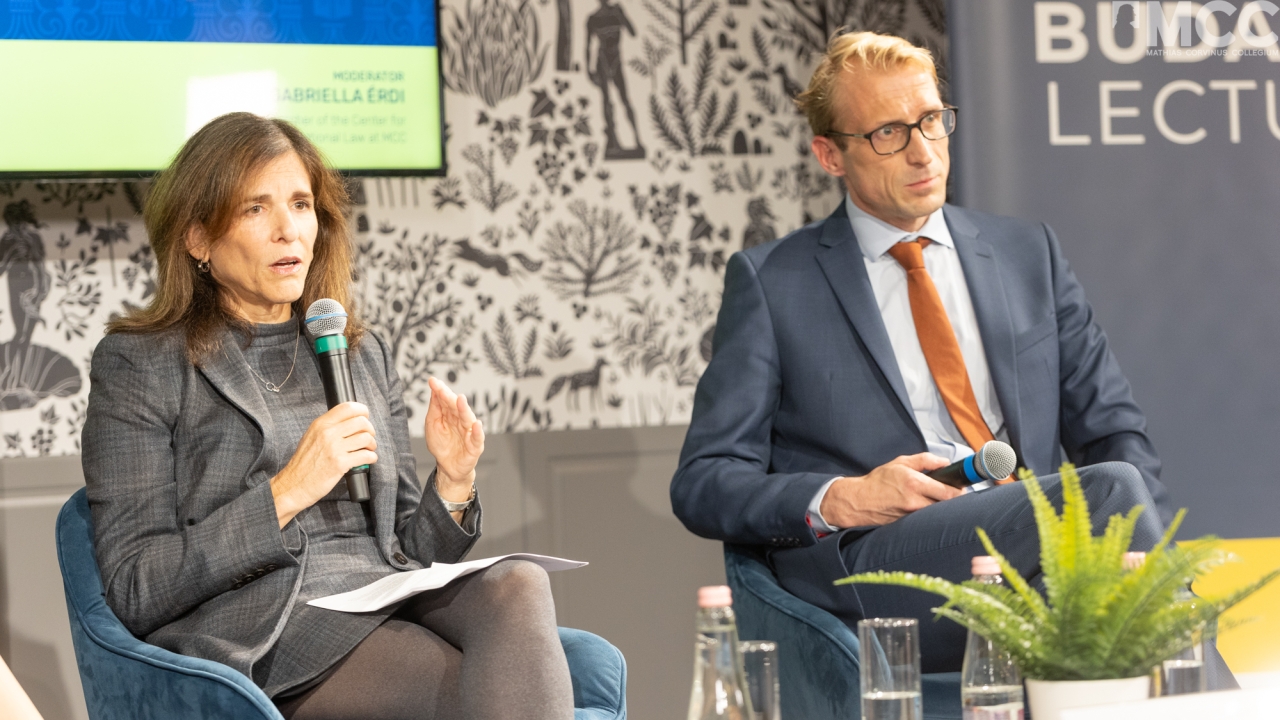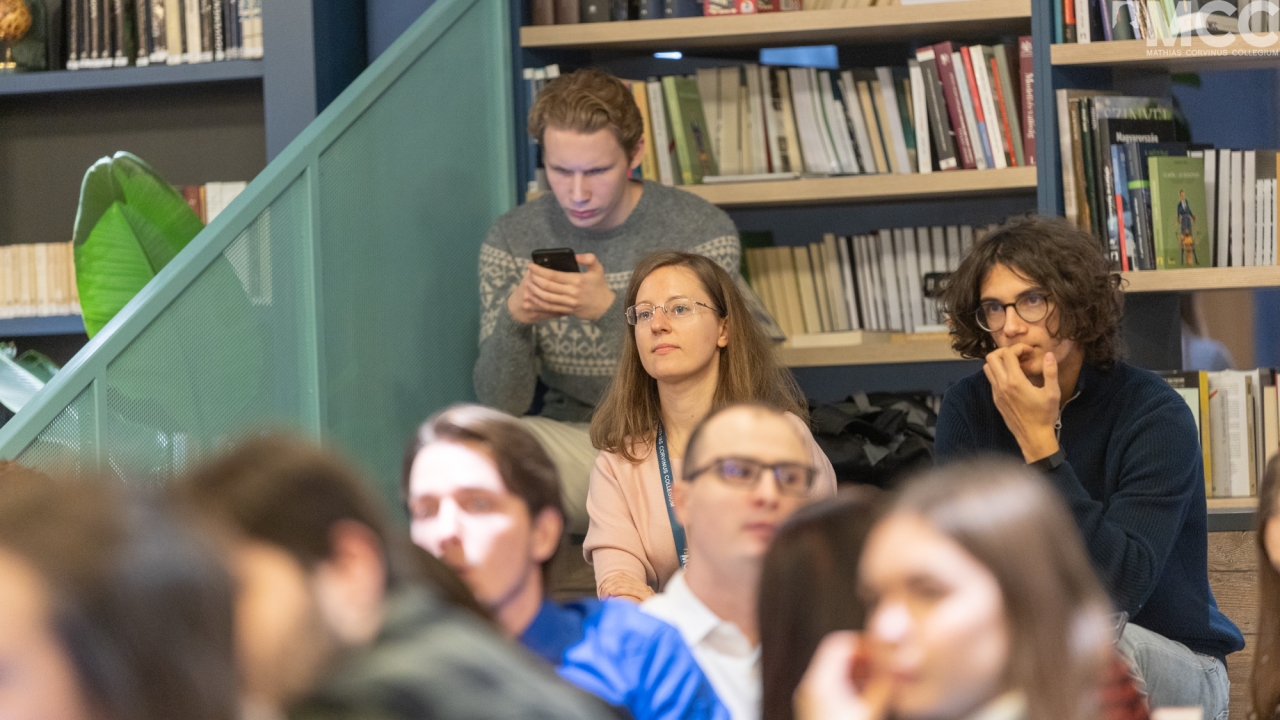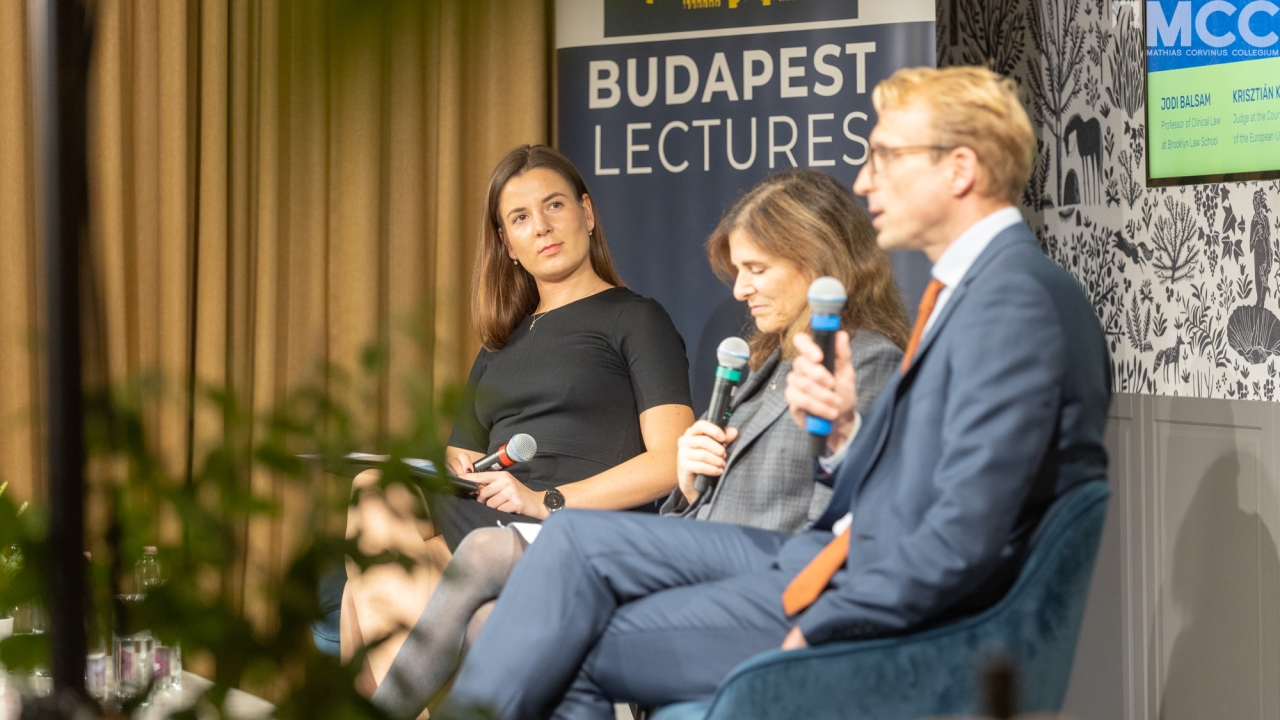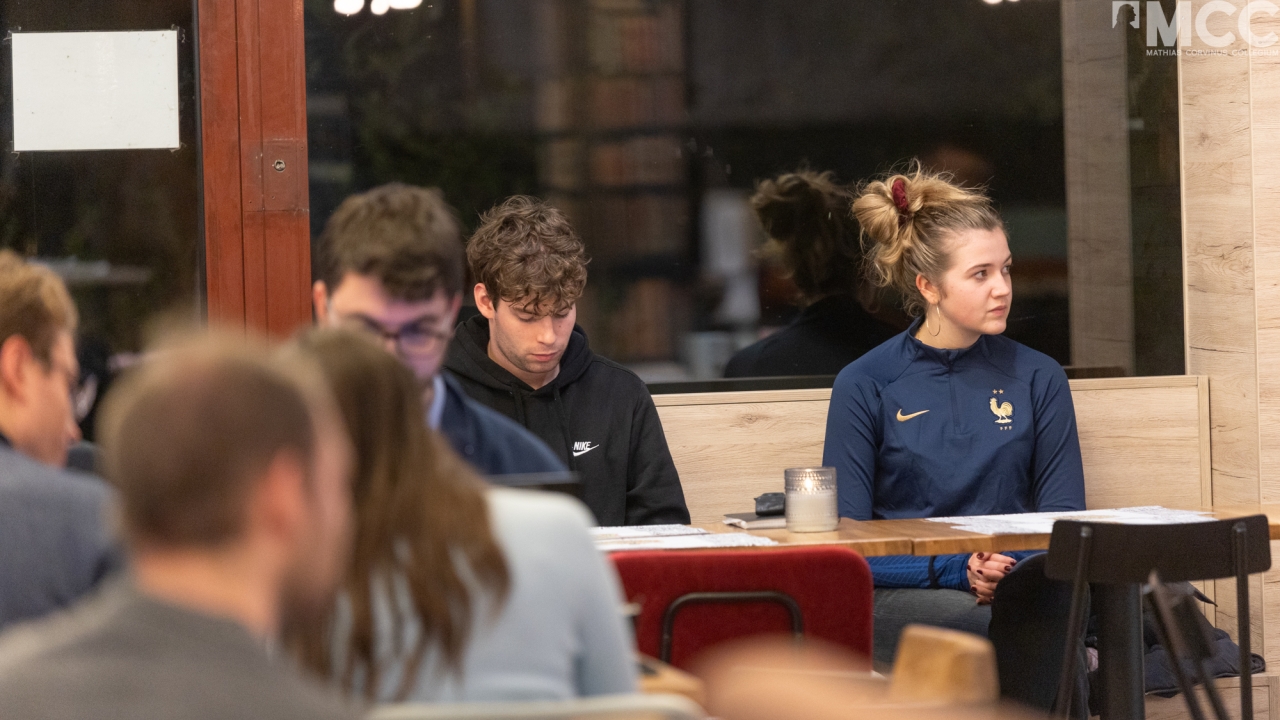Reading time: 3 minutes
„Sports embody the virtues and values that historically elevated Western civilization: determination, teamwork, self-discipline, fair play, camaraderie and community” – Jodi Balsam Professor at Brooklyn Law School and Krisztián Kecsmár, Judge at the Court of Justice of the European Union pointed out in the latest event of the MCC Budapest Lecture series that compated the European and American approaches to sports law.
Students of the MCC Law School were able to learn about the diverse and timely challenges of sports in an extraordinary academic course organised by the Center for International Law. As part of this academic course, the Budapest Lecture compared the US and EU legal approaches and regulation in the field of sports. The American aspects of sports law were presented by Jodi Balsam, Professor at Brooklyn Law School while the European challenges were told by Krisztán Kecsmár, Member of the Court of Justice of the European Union and the discussion was moderated by Gabriella Érdi, researcher at the Center for International Law.
The discussion first set out and compared the general regulatory approach in the US and in Europe. While the American model is structured from the bottom up and the professional leagues, the private and commercial law play a crucial role in the organisation of sport activities, the European model relies much more on both EU and national regulations, while the European Court of Justice also adopts decisions that fundamentally shape the way the industry operates. The discussion not only covered the role of the leagues but also the competitive aspects of sport, as the speakers emphasized that while the US approach focuses exclusively on the economic aspects through the “consumer welfare” model, the European approach pursues more diverse goals. The speakers also explored the important role of arbitration, which fits well with the needs of the sport industry in terms of swift and effective conflict resolution, but at the same time raises serious concerns: it offers weaker procedural guarantees, lacks public access to proceedings and often leaves the players without the possibility to choose regular judicial forums.
During the lecture, the prohibition of performance-enhancing drugs (PEDs) in sport was also analyzed. It is considered as a complex challenge, driven by criteria set by organisations such as the World Anti-Doping Agency (WADA). A key to maintaining the integrity of sport is to understand why certain substances are banned and what the challenges of their regulations are. The WADA's criteria for prohibiting banned substances go beyond performance enhancement and include health risks and violations of the “spirit of sport”.
Last but not least, the issue of Caster Semenya also came up in the discussion. This has been at the centre of the debate on human rights in sport. Caster Semenya, a South African middle distance runner and two-time Olympic gold medallist, has faced significant challenges because of the regulations of the International Association of Athletics Federations (IAAF, now World Athletics) impose on athletes with developmental disabilities (DSD). The Semenya case sheds light on the relations between the fundamental rights of the athletes and the fairness of sport competitions.
Although sport is becoming an increasingly complex industry, the speakers agreed that in order to preserve the dignity and value of sport, we must continue to recognise and value its human nature and the deliberate, goal-directed pursuit of excellence.









